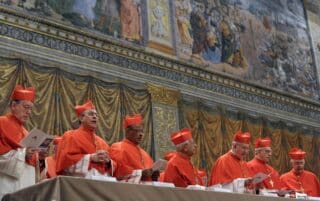This April the National Food Authority, with a budget of P17.1 billion, is set to import 800,000 metric tons (mt) of rice, through a surprise public tender among foreign traders and grains exporters with clearly separate and differing international quotes.
Vietnam’s state-owned and biggest trading firm, Southern Food Corp. (Vinafood II) which has jurisdiction in this part of the world on rice trade, has signified its wish to supply the whole 800,000 mt, this time with the pricey 15-percent rice brokens in place of the cheaper 25-percent brokens that have dominated the NFA’s import mix close to 100 percent! Deemed very significant too is the participation of two Thai major private trading outfits, Asia Golden Rice Co. Ltd. and Thai Hua Co. Ltd., Vietnam’s Gentraco Corp., and South Korea’s Daewoo Corp.
The NFA appears to be indifferent to the unfavorable impact of large-scale biddings—such as for the 2.3 million mt of rice worth $1.5 billion which raised the NFA’s acquisition cost to about $700/mt at one point. International quotes and prices crashed to $323/mt after the conclusion of the tenders. Private traders were no match to state-owned trading firms that have monopolized the NFA’s rice import requirements from 2009 to 2013, save for the 75,000 mt in a July 2009 open bidding (“RP may buy 75,000MT of rice from Thailand, Pakistan,” Business, 7/25/09).
As in the July 2009 tender, familiar names are listed by the NFA in the mega tender this April. Thailand’s Asia Golden Rice Co. Ltd., and Thai Hua Co. Ltd., which offered lower bid prices of $487/mt (CNF) on Thai rice international quotes of $459 (FOB), bested Vinafood II which had a surprisingly much higher bid of $504 despite a much lower Vietnam rice benchmark of $359. Amid the setback, Vinafood II supplied the NFA 1.5 million mt of rice in a G2G (government-to-government arrangement) only six months earlier at $549.50 (CNF).
Will the Thai firms prevail this time as in the July 2009 tender? Let’s hope the NFA budget of $479 (CIF/DDU) would remain as is, or even much lower, after the conclusion of the tenders.
—MANUEL Q. BONDAD,
manuelbondad@yahoo.com



